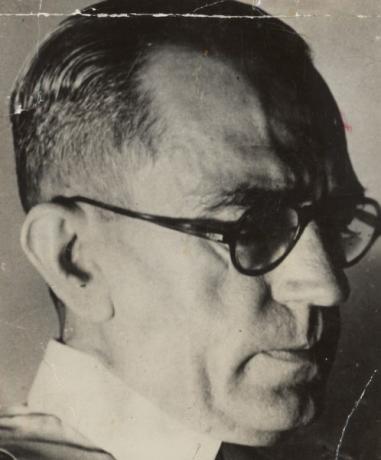A PL of Fake News or PL2660 is a bill authored by Senator Alessandro Vieira (PSDB) that establishes mechanisms for regulation of the performance of digital platforms in Brazil, such as social networks and exchange applications messages. The project also establishes mechanisms to curb the spread of criminal content on these platforms.
The PL has been under debate in the Chamber of Deputies since 2020 and had its final version filed in April 2023. It establishes that content involving a series of crimes must be excluded and social networks must act to prevent such content from being propagated. The bill establishes fines for non-compliance with the law.
Read too: What is the role of the National Congress in the Brazilian political scenario?
Topics of this article
- 1 - Summary of the Fake News PL
- 2 - What is the Fake News PL?
- 3 - What does the Fake News PL propose?
- 4 - Criticism and praise of the bill
Summary on the Fake News PL
The PL of Fake News, also known as PL2660, is a bill authored by Alessandro Vieira (PSDB).
Establishes mechanisms for regulating the performance of digital platforms in Brazil.
It also determines that digital platforms act to prevent the spread of criminal content.
is up for debate in the Chamber of Deputies since 2020.
Failure to comply with its terms provides for the collection of a fine from digital platforms.
What is the Fake News PL?
The Fake News PL is how the bill that seeks to establish the Brazilian Law of Freedom, Responsibility and Transparency on the Internet. This project is also known as PL 2620/2020, authored by Senator Alessandro Vieira (PSDB). The final version of it was filed by federal deputy Orlando Silva (PCdoB), on April 27, 2023.
This project was approved in the Senate in 2020 and has since been under discussion in the Chamber of Deputies. PL2620 seeks to criminalize the spreading fake newsthrough social networks and instant messaging applications. In addition, it advances on the regulation of digital platforms in Brazil. Examples of digital platforms include Google and TikTok.
Do not stop now... There's more after the publicity ;)
The proposal, which was stalled in the Chamber of Deputies, advanced rapidly in early 2023 due to the repercussions of the anti-democratic attacks that took place in Brasília, on January 8, 2023; and the attacks on schools that took place in São Paulo and Blumenau. In both cases, social networks were seen as indirectly responsible for allowing false news and extremist content to circulate freely among users.
Specialists in social networks have pointed out their responsibility and that of messaging applications in important events in recent years. This is because these spaces have been and are constantly used for the dissemination of proven false news and for the dissemination of extremist ideals, like neo-Nazism.
O purpose of the law is to regulate the service of digital platforms in Brazil to force them, legally, to establish means of control over published content in order to prevent false news and extremist messages from being broadcast. The law also establishes punishments for digital platforms, in case of non-compliance with it.
The project was based on a German law implemented in 2017 and which is considered an international model in the debate on the regulation of digital platforms. The device in question is the Network Inspection Law, popularly known as the Facebook Law.
Read too: Constitution of 1988 — all about the highest law in force in Brazil
What does the Fake News PL propose?
As pointed out, PL2620 establishes mechanisms that regulatesm the performance of digital platforms in Brazil, forcing them to combat the dissemination of false news and extremist ideologies.
Among the measures established in this PL, the legal requirements for digital platforms to act to prevent or reduce illegal practices in their digital spaces stand out. As a result, digital platforms can be held accountable based on the device if they collude with content considered criminal.
You criminal content that should be moderated and deleted through digital platforms involve:
crimes against state ddemocratic of dright;
acts of terrorism or which are preparatory to terrorist acts;
suicide induction and self-mutilation;
violence against women;
racism;
sanitary infraction;
crimes or incitement of crimes against children and adolescents.
To the platforms will have then obligation to monitor the posts carried out to prevent messages with the contents of the above crimes from being posted and disseminated. They must also present half-yearly reports pointing out the actions taken to prevent the propagation of messages with abusive and extremist contents. These reports will serve to indicate whether companies are complying with the obligations provided for by law.
PL2620 also establishes that, if digital platforms do not comply with the provisions of the law, they must pay fines which can reach 10% of the company's revenues in Brazil, with a fine limit of 50 million real. The law also determines that digital platforms have representatives in Brazil so that they can be sued in court, if necessary.
The bill also defines that digital platforms will have up to 24 hours to remove content from the air, in case of any court order. In case of non-compliance, they can pay fines ranging from 50 thousand to 1 million reais per hour of non-compliance.
The law determines that digital platforms prevent the dissemination and proliferation of criminal content, but is not responsible for them, except in the case of paid content, that is, if any publication crime is propagated through advertising and promotion, digital platforms will be responsible. In addition, boosted content must be made by identifying the user.
The bill also determines that the mass dissemination of untrue messages through robots will be considered a crime. For these cases, the bill provides for imprisonment of one to three years and a fine.
Others important points from PL of Fake News they are:
extension of parliamentary immunity to social networks;
obligation of digital platforms to remunerate journalistic companies for the propagation of their content.
The bill also wanted to establish the creation of a regulatory body that would monitor digital platforms. This item, however, was removed from the project because it displeased both congressmen from the base of the Lula government and the opponents.
Criticism and praise of the bill
The PL2620 divides people's opinion, although many feel it necessary to regulate social media and instant messaging apps as they have been used to propagation of anti-democratic and extremist ideals that have undermined democratic regimes in several countries and contributed to the growth of movements extremists.
The validity of the law will be given exactly by charging digital platforms with effective actions to combat to this type of content, establishing their responsibility if they do not comply with the terms cool. A accountability of digital platforms é a valid measure, in the opinion of supporters, exactly because they profit millions from the propagation of this type of content.
Already the critics of the law The accuse in limit freedom of expression of users of social networks, and digital platforms claim that their demands can compromise the free services they offer. Companies affected by the project still say it needs more debate, even though it has been under discussion for three years.
By Daniel Neves
History teacher
Would you like to reference this text in a school or academic work? Look:
SILVA, Daniel Neves. "What is the Fake News PL?"; Brazil School. Available in: https://brasilescola.uol.com.br/o-que-e/historia/o-que-e-a-pl-das-fake-news.htm. Accessed on May 5, 2023.



